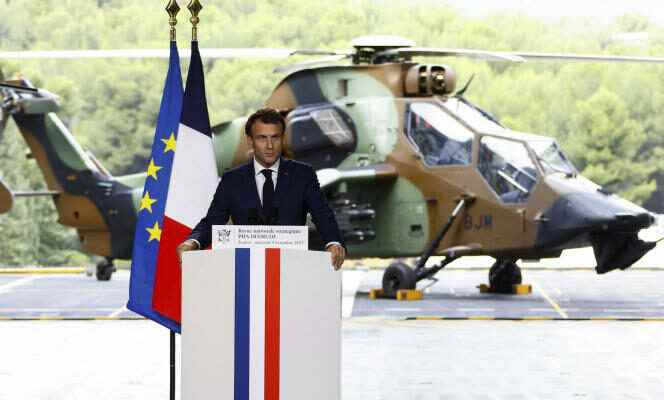History of a concept. Plunge the enemy into uncertainty about what our intentions are or what our response will be: strategic ambiguity is a very old practice, already theorized in The art of Warfrom Chinese Sun Tzu, to VIe century before our era. Although this notion is not linked to nuclear deterrence alone, it nevertheless finds its full dimension there because of the issues and risks specific to atomic weapons.
The French nuclear doctrine as it has been defined since the 1960s is careful not to specify which are the vital interests of the nation which, if attacked, would lead to a response with nuclear fire. It is the Head of State and he alone who, ultimately, decides to press the button.
“The nuclear weapon is inseparable from the system of the Ve Republic ; this is also why the Head of State is elected by universal suffrage. But in the United States or in Russia, the president has this same power of decision on the nuclear fire”, emphasizes Bruno Tertrais, Deputy Director of the Foundation for Strategic Research, who notably wrote, with Jean Guisnel, The President and the bomb. Jupiter at the Elysée (Odile Jacob, 2016).
This vagueness assumed on “the vital interests of the nation” aims to leave a margin of appreciation to the political decision-maker as to the nature of the response and to create doubt for the potential aggressor about what the consequences of his attack will be. There is always at sea at least one, or even two, nuclear-powered ballistic missile submarines (SNLE) capable of firing missiles; France has three since the start of the war in Ukraine.
“The objective is to maintain an ambiguity which leaves the President of the Republic the freedom to decide in situation the nature and scope of our vital interests”, explains Elie Tenenbaum, director of the Center for Security Studies at the French Institute of International Relations (IFRI). When he evokes deterrence, the words of the Head of State must therefore be carefully weighed: what is suggested is at least as important as what is said. ” But you don’t always get out of strategic ambiguity to your detriment: it may be necessary to deter an adversary or reassure an ally… or your own population.notes Bruno Tertrais.
Credibility of the response
Asked on October 12 on France 2 what the response would be to Moscow’s use of a tactical nuclear weapon with limited effects in Ukraine, Emmanuel Macron replied that there would be no nuclear reprisals in order to avoid an uncontrolled escalation.
You have 54.98% of this article left to read. The following is for subscribers only.
